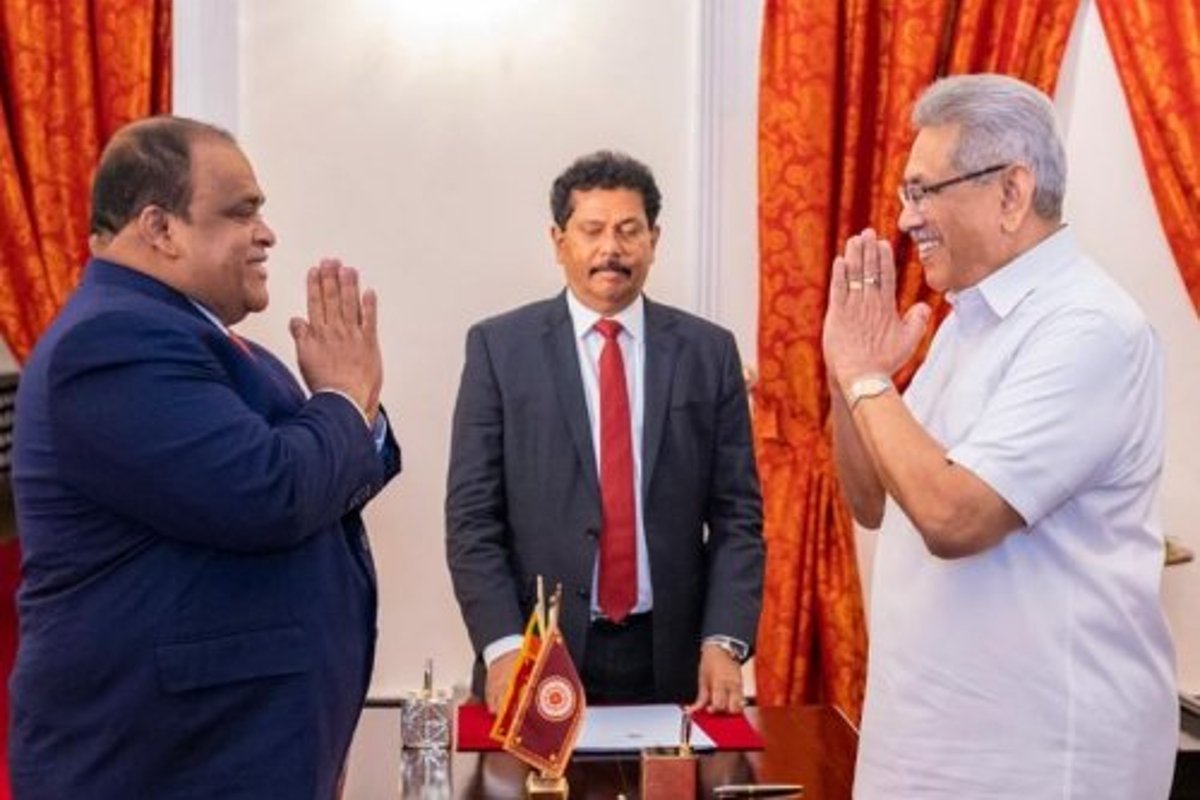Posted on: June 28, 2022, 09:11h.
Last updated on: June 28, 2022, 10:08h.
Sri Lankan native Dhammika Perera knows a thing or two about building wealth. Back in 1999, at the age of 32, he set the audacious goal of leading each of the country’s 12 primary business sectors. More than two decades later, the billionaire has largely accomplished his mission.

Worth an estimated $4.5 billion, Perera generated his wealth through his conglomerate Vallibel One. The publicly traded company primarily deals in the finance and ceramics industries.
But when Sri Lanka legalized commercial gambling in 2010, the billionaire pounced at the opportunity. Perera has since opened several casinos and integrated resorts through Vallibel One subsidiaries Greener Water Limited and Amaya Resorts & Spas.
Perera’s hospitality and gaming portfolio includes such luxury resorts as Amaya Beach in Pasikudah, Amaya Hills in Kandy, and Amaya Lake in Dambulla. His casinos are located in Colombo, where he owns Bally’s Casino Sri Lanka, Bellagio Colombo, and The Ritz Club.
With Sri Lanka’s economy in crisis, the government is turning to its richest resident for help. Last week, Perera was appointed investment minister of the South Asia island country by its newly appointed President, Gotabaya Rajapaksa.
Billionaire Tapped
Sri Lanka’s economy is spiraling downward, with no end in sight. The government this week shuttered its public buildings and schools and told state employees to work from home in order to help battle the country’s severe fuel shortage.
Reuters reports that with Sri Lanka’s foreign exchange reserves at record lows, the island country of 22 million people is “struggling to pay for essential imports, such as food, medicine, and most critically, fuel.” Last month, Sri Lanka defaulted on US$51 billion worth of debt owed to foreign nations.
Along with appealing for aid from the International Monetary Fund (IMF), Rajapaksa is banking on Perera being able to turn around the nation’s economic standing.
Perera has already issued a 12-step action plan to make Sri Lanka “a developed nation” by 2030. Among the blueprint’s goals are increasing foreign currency bank deposits by $5 billion over the next five years, growing tourism from international travelers, and reducing the government’s support of helping students study abroad in favor of using that money to lure in foreign exchange students to Sri Lanka.
Perera also supports increasing foreign worker remittances from US$7 billion to $24 billion annually by 2030, establishing government-owned budget airlines to spur domestic and nearby foreign travel to countries such as Thailand, Singapore, Malaysia, and Vietnam, and investing in solar and coal power plants.
Much Work Ahead
Not everyone in Sri Lanka is convinced the billionaire can singlehandedly help boost the national economy.
Regardless of Perera’s appointment, we need to get the groundwork done. Sri Lanka is facing serious macroeconomic headwinds,” said Lakshini Fernando, a macroeconomist at investment firm Asia Securities. “Investors will look for an IMF program and debt restructuring.”
Sri Lanka certainly isn’t the first nation to seek an IMF bailout. The international financial institution played a critical role in bailing out Greece in 2016, along with the European Union and European Central Bank.
Just three years later after emerging from fiscal calamity, Greece decided to authorize a single integrated casino resort in hopes of spurring regional activity in and around the Athens capital.
Hard Rock International eventually prevailed in a hotly contested bidding war with Mohegan Gaming & Entertainment. Hard Rock and its local Greek development partner, Gek Terna, are moving forward with a $1.2 billion undertaking called “Inspire Athens.”
